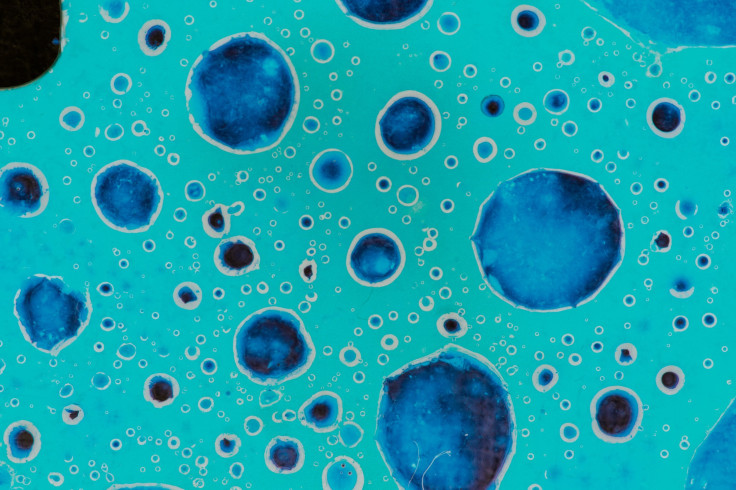Stem Cells Loaded With Toxins Successfully Eliminate Traces Of Brain Cancer In Mice

If stem cells are technically capable of converting into any cell, then what’s stopping them from becoming poison-packing cancer-killing super cells? That was the exact thought of a group of Harvard scientists who successfully engineered stem cells that can produce and secrete a toxin capable of killing brain tumors.
In the study, now published in STEM CELLS, Dr. Khalid Shah and his Harvard team described their journey to the creation of this one-of-a-kind stem cell. The cells were tested in mice who were afflicted with a disease similar to human brain cancer. These mice had their tumors removed and were then injected with the encapsulated stem cells. The toxin-loaded stem cells successfully demolished cancer cells in the brains of mice, once the main tumor had been removed. The stem cells are not only personally resistant to the poison but also capable of releasing it themselves.
"After doing all of the molecular analysis and imaging to track the inhibition of protein synthesis within brain tumors, we do see the toxins kill the cancer cells and eventually prolonging the survival in animal models of resected brain tumors," Shah explained in a press release.
Researchers believe the key to their study’s success was their method of encapsulating the cells in a biodegradable gel before injecting them into the mice. This, according to the press release, helps to reduce the high failure rates that studies of this nature had experienced in the past. As expected, the cancer cells' death resulted in a longer lifespan for the mice.
This idea has been used in the past with much success as a way to tackle blood cancers, but due to the toxins' short life, they have previously proved unsuccessful in the destruction of solid tumors. All it took was a slight tweak of the cell’s genetic makeup, and the spectacular feat was accomplished.
"A few years ago we recognized that stem cells could be used to continuously deliver these therapeutic toxins to tumors in the brain, but first we needed to genetically engineer stem cells that could resist being killed themselves by the toxins," Shah said.
Although cytotoxins are actually deadly to cells, Shah and his team’s specific cells are mutated to handle these poisons. The next step for the researcher and his team is to combine the specially designed stem cells with various therapeutic ones. They hope this will further enhance the cells' brain tumor-fighting abilities.
Source: Shah K, Stuckey DW, Hingtgen SD. Engineering toxin-resistant therapeutic stem cells to treat brain tumors. STEM CELL. 2014.



























